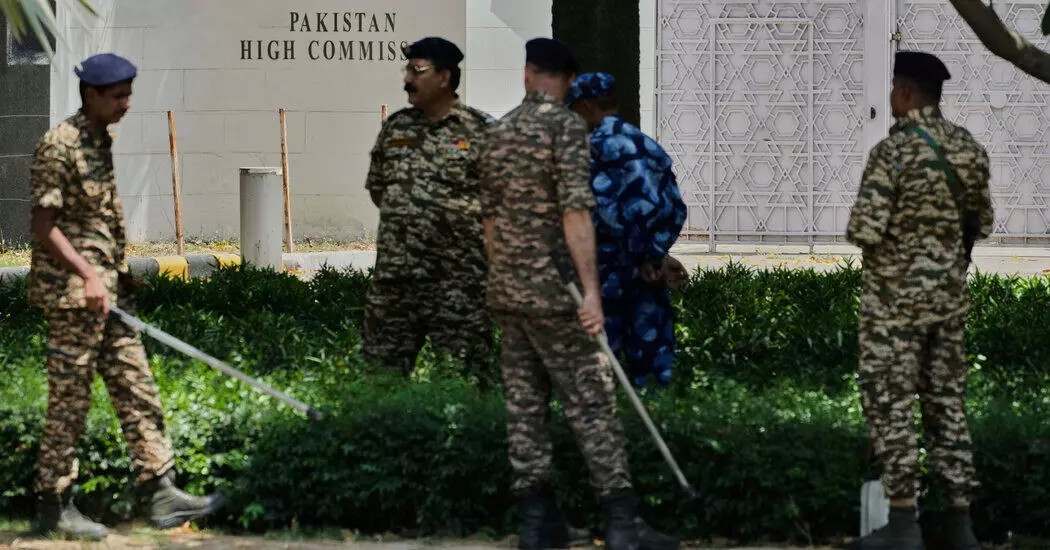Understanding the Shimla Treaty: A Key to Stability in India-Pakistan Relations

The Shimla Treaty, signed in 1972, serves as a cornerstone in the tumultuous relationship between India and Pakistan. It was established following the Bangladesh Liberation War and aimed to promote peace and stability in the region. But what exactly does this treaty entail, and how does it affect current geopolitical tensions?
What is the Shimla Treaty?
The Shimla Treaty was a significant agreement that sought to lay down principles for the resolution of disputes between India and Pakistan. One of its key tenets was the commitment to resolve issues bilaterally, without third-party intervention. The treaty’s intent was clear: to provide a framework through which both nations could later address their differences through dialogue. However, as recent events illustrate, the treaty's principles are under severe strain.
Recent Developments: Tensions on the Rise
In light of the escalating tensions between India and Pakistan, particularly following the recent militant attack in Kashmir, the importance of the Shimla Treaty has come into sharper focus. India’s response to the attack included a suspension of critical agreements, including the water treaty linked to the Indus River system. Pakistan’s government, in turn, labeled these actions as unilateral and politically motivated, warning that any attempts to divert river flows would be considered an act of war. This has raised alarm bells among international observers, as it threatens to unravel decades of diplomatic efforts aimed at maintaining stability in South Asia.
The Indus Water Treaty: A Critical Lifeline
The Indus Water Treaty, brokered by the World Bank in 1960, has historically been viewed as one of the most successful water-sharing agreements. It allows Pakistan access to the Indus River system, crucial for its agriculture, which relies on these waters for about 90% of its irrigation needs. With India’s recent threats to suspend this treaty, the stakes have never been higher. The ramifications could extend beyond water shortages; they could lead to heightened military tensions, as Pakistan has made it abundantly clear that it views any diversion of water as a declaration of war.
The Path Forward: Dialogue Over Conflict
At this juncture, it is imperative for both nations to revisit the principles of the Shimla Treaty. Dialogue must replace hostility. Engaging in constructive conversations around the core issues that separate the two countries is essential. The international community can play a role in facilitating discussions that may lead to renewed cooperation and understanding.
The Role of the Shimla Treaty in Future Relations
The Shimla Treaty holds significant symbolic and strategic value for both nations. It serves as a reminder of the need for diplomatic engagement in the face of adversity. As tensions continue to escalate, prioritizing communication and cooperation over conflict will be crucial for both India and Pakistan. The future of South Asia may well depend on it.
